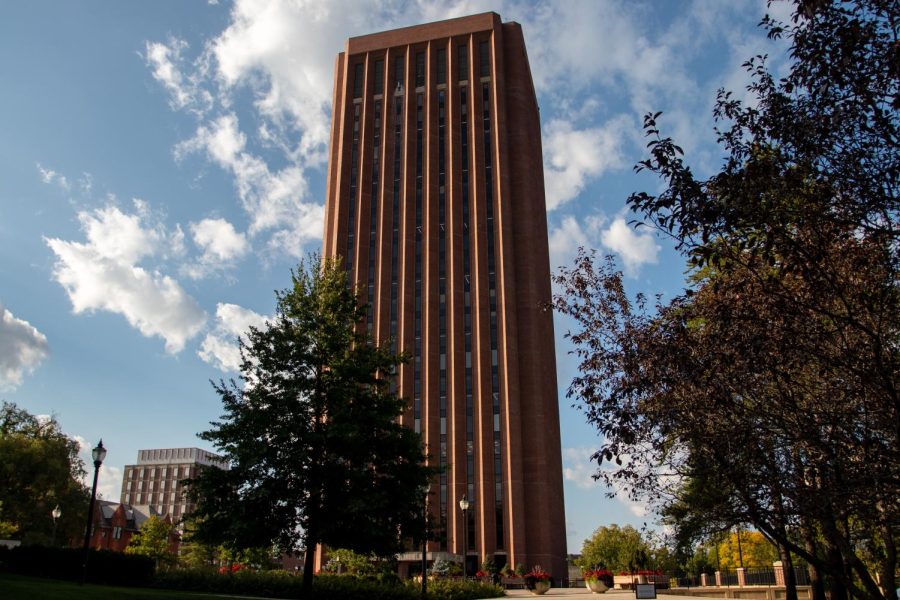Members of the University of Massachusetts World Librarians team are working to promote open access information and get their RSO up and running this semester. Professor of environmental conservation Charles Schweik and students involved with the World Librarian team discussed sharing education information with schools in Malawi and Kenya.
Seven years ago, Schweik attended a talk on campus given by Peter Suber, a philosopher and director of the Harvard Open Access Project.
Suber’s talk was on the concept of “open access,” or transmitting information via satellite to other parts of the world. Schweik went up to Suber and asked if he knew who was deciding what information was going into the signal. Suber said that it was the “Outernet people,” a group based in the United States.
“I was realizing that here’s some people in the global north deciding what the rest of the world should receive,” Schweik said. “That bothered me.”
He decided to reach out to Outernet, a broadcast data company, to see if there was a way to get feedback from those receiving the information being broadcasted.
Shortly after speaking with Outernet, Schweik said he got in touch with Carl Meyer, the executive director of the private sector company Shift IT. Schweik says both he and Meyer had a vision of getting information to those in the global south while also receiving feedback from them on what information they wanted.
Schweik said that they discovered the RACHEL device, which stands for Remote Area Community Hotspot for Education and Learning: a WIFI router device that is not connected to the internet but has a database of open educational materials.
“What Carl and I decided to try to do was set up a complimentary socio-technical system that allowed users of the RACHELs that Carl was deploying in Malawi to ask for information that they wanted,” Schweik said. “The whole idea of the World Librarians project is to get information to people in places where they don’t have access. Get information that they want, not what we think they want.”
He explained that World Librarians in countries such as Malawi help students receive used laptops and a “keepod”, which is a “little $7 USB stick that runs an operating system.”
Now, over 30 schools across Malawi and Kenya have RACHEL devices that they use to receive information. After the computer lab is set up for the students to use, Meyer will instruct the teachers on how to request information through Twitter.
Madelyn Olivier, a senior biology major, works on finding the educational content for these students. Olivier joined World Librarians as a sophomore, and after receiving several requests from schools in Malawi and Kenya on topics such as “how to make toys out of trash,” she continued her work with the program beyond the classroom.
“It kept me more interested in maintaining it,” she said.
“When I go about searching, I think that YouTube videos are the most helpful,” Olivier said. “It’s hard to find good quality videos that are open access but you can also do your best to search related content as long as you think it’s related to what they’re looking for.”
Schweik says that he remembers a unique request where an all-girls high school that wanted information on how to get a helium balloon into space.
“One of my goals over the longer term is to have searcher teams in country,” Schweik said. “Like at a university in Malawi, rather than us doing it because of those cultural differences.”
World Librarians has a MinuteFund campaign that is accessible through their website: https://worldlibrarians.org. The program also hopes to organize a World Librarians club on campus to get more people involved.
“The whole success of this up to now, which has been with no funding, has been because of unbelievably great UMass students,” Schweik said. “This is something that students at UMass should be really proud of.”
Professor Charles Schweik can be contacted at [email protected].
Paulina Arce can be reached at [email protected].


















